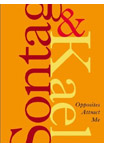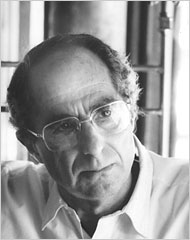
Craig Seligman begins by saying “I didn’t want to write a book with a hero and a villain, but Sontag kept making it hard for me.”, a statement which reflects my primary objection to this book: too much Craig Seligman.
“She [Sontag] is not a likeable writer — but then she doesn’t intend to be. She’s elitist and condescending towards those less-informed than she is (i.e., everbody) and gratingly unapologetic about it.” By using this “shoot from the hip” style, Seligman is simply emulating his heroine Kael.
Pauline Kael is my favorite film critic, not because of her approach to criticism which is undisciplined and ideosyncratic, but because she is right almost all the time. I love Kael’s line about Richard Chamberlain: “He keeps us conscious that he’s acting all the time. His toes act in his shoes”.
This approach to writing falls apart quickly though when the instant conclusions don’t resonate. In contrast I was struck by the principled approach Sontag took to larger issues, such as her early comment about the complexity of the issues surrounding the 9/11 attacks:
“Where is the acknowledgment that this was not a “cowardly” attack on “civilization” or “liberty” or “humanity” or “the free world” but an attack on the world’s self-proclaimed superpower, undertaken as a consequence of specific American alliances and actions? How many citizens are aware of the ongoing American bombing of Iraq?”
This statement prompted the misguided Andrew Sullivan to create the “Sontag Award” for those who oppose the war on terrorism. Is this the signal example of the old vs. new public intellectual? The real scandal is the death of half a million Iraqi children, prior to 9/11, due to U.S.-sponsored sanctions:
from a 60 Minutes interview (5/12/96)
“Lesley Stahl on U.S. sanctions against Iraq: We have heard that a half million children have died. I mean, that’s more children than died in Hiroshima. And, you know, is the price worth it?
Secretary of State Madeleine Albright: I think this is a very hard choice, but the price–we think the price is worth it.”
Sontag and Kael weren’t opposites, Kael was a brilliant pop writer for whom judgments about personal style were paramount (her own style excepted). She wrote about popular culture within the bubble of popular culture. Sontag’s imperious personal style may have been an important defense mechanism against the oppressive male high culture crypt-keepers of the day. If you remove the personality factor, and look into the substance of Sontag’s writings, to me she comes across as brave and warm-hearted.
“Opposites Attract” is, in fact, inapposite: Kael and are not opposite personalities — for Sontag personality was oblique, an accoutrement, her inner thoughts revealed only in the context of her writings, and in the times in which those writings were created (e.g. 9/11). Analyzing ideas in within these layers is a challenging task, and just as Edmond Morris did in his Reagan biography “Dutch”, I think Seligman may have taken the easy way out.



